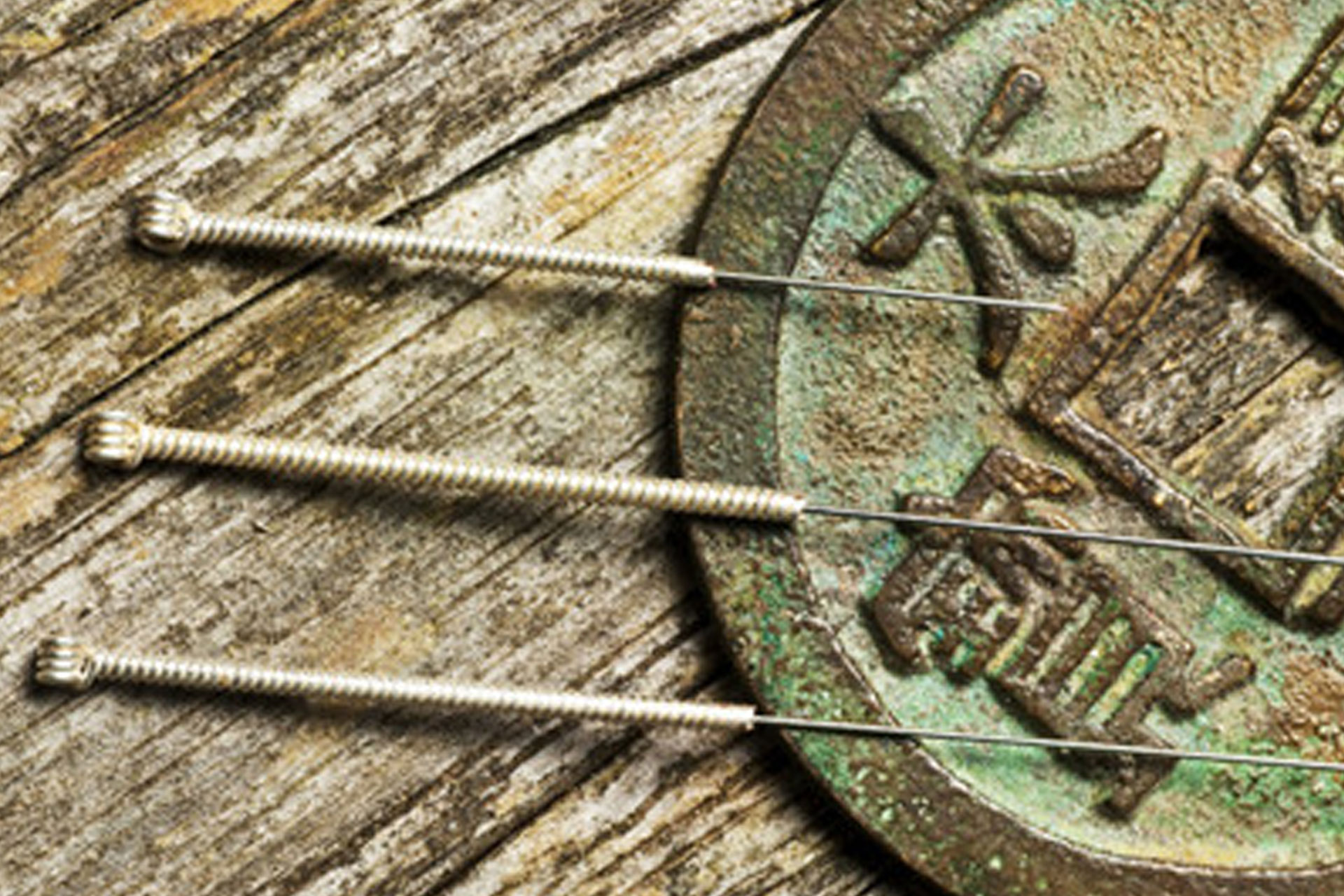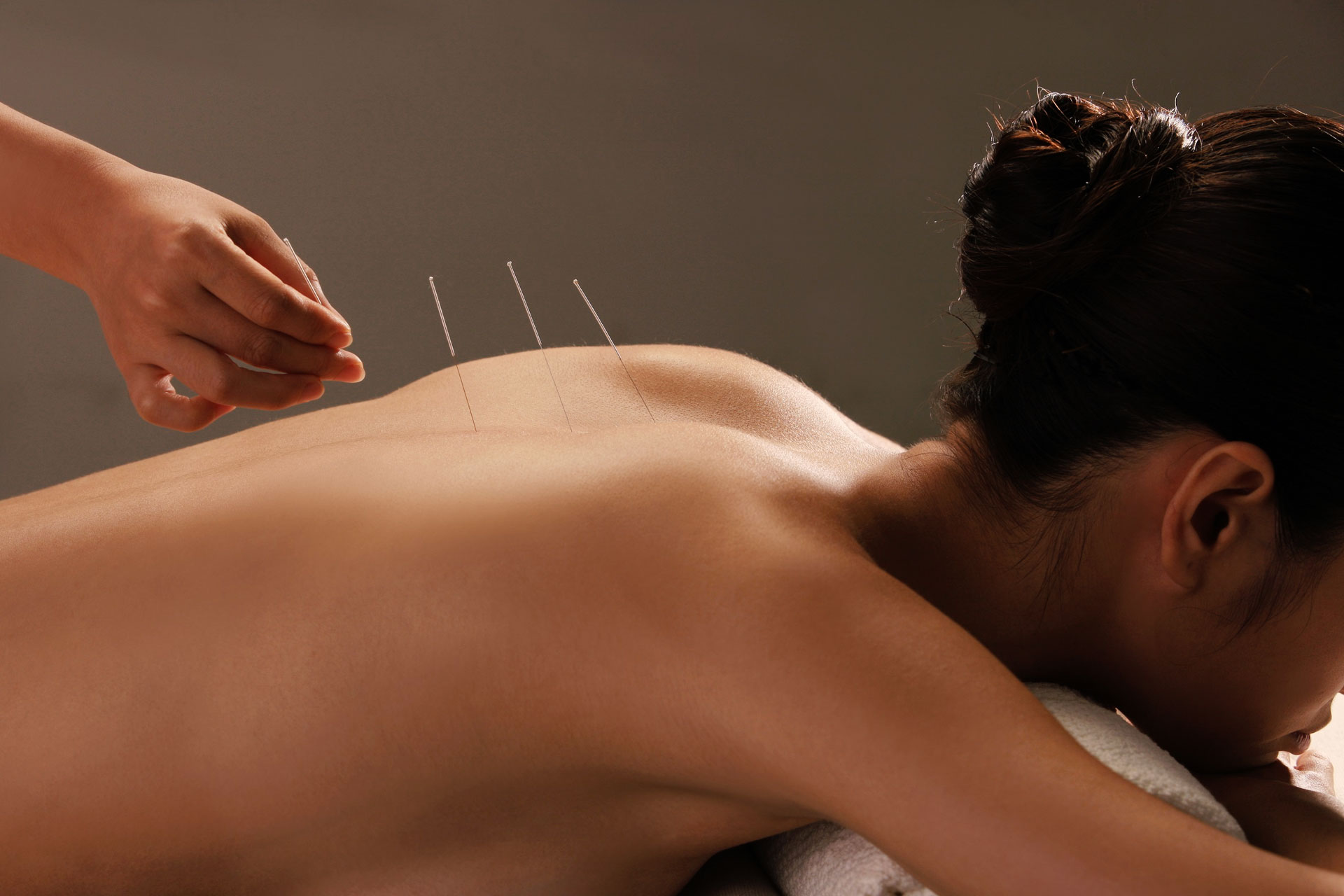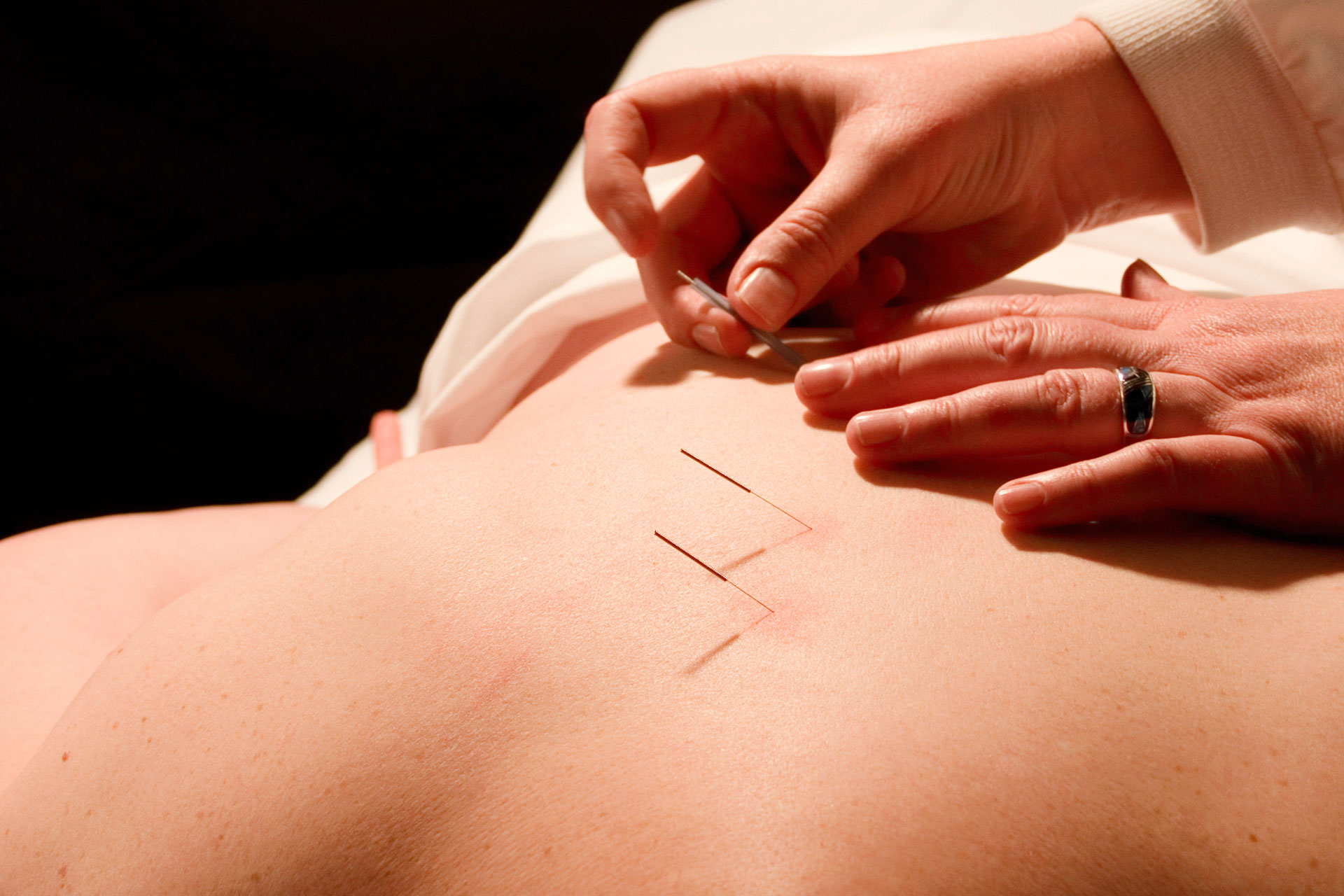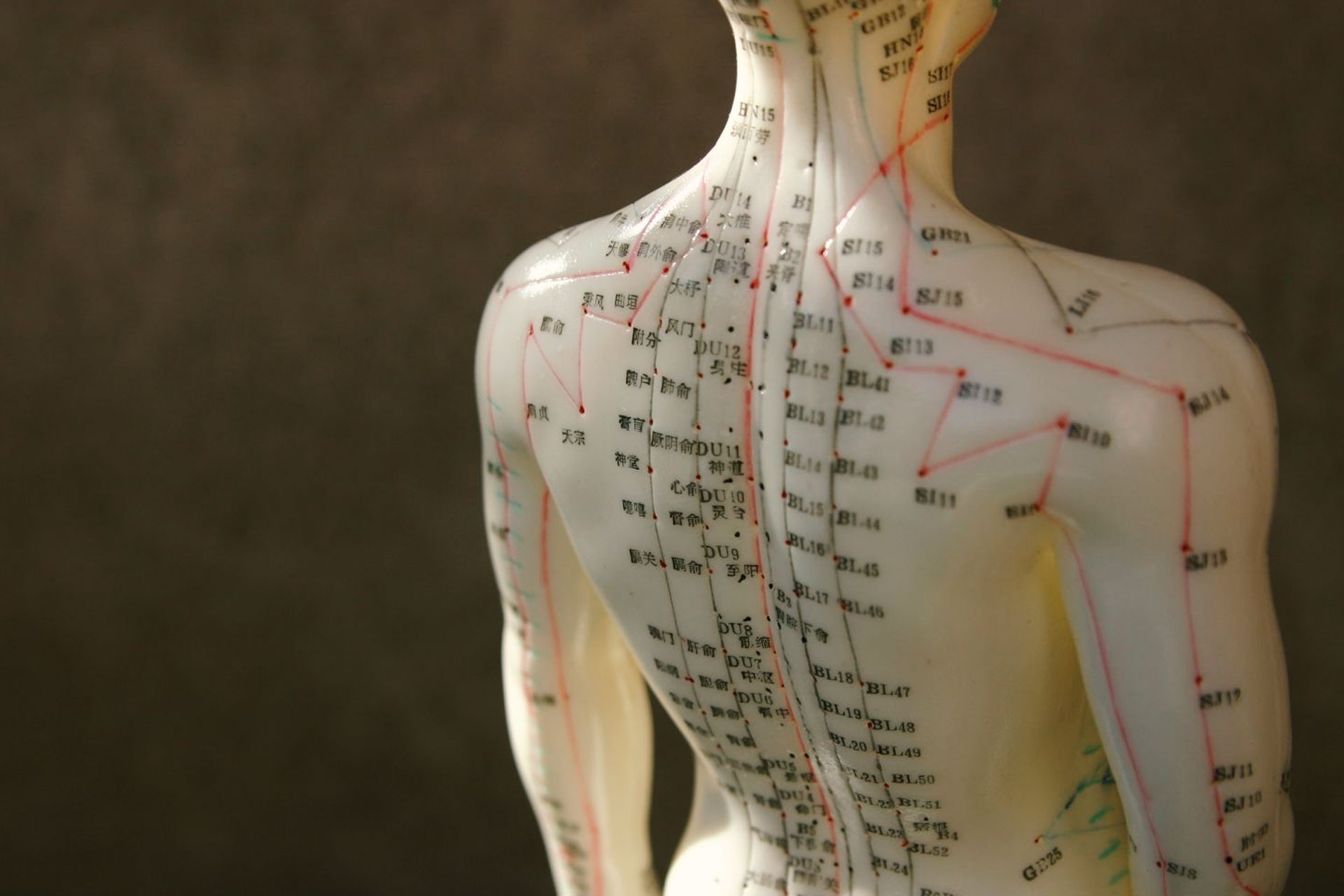Traditional Chinese Medicine is a holistic medical practice that encompasses techniques such as Acupuncture, Tuina (massage), acupressure, diet therapy, cupping, moxibustion, gua sha and herbal remedies. It is a medical system that has been in practice for over 2500 years. TCM works on the principle that discovering and managing the root cause of a health concern will best manage the whole system, subsequently removing the symptoms or branches.

Acupuncture is a technique within the scope of Traditional Chinese Medicine (TCM) where very fine, disposable needles are inserted into specific points on the body. TCM views the body as a group of systems (meridians), which represent an organ system. Although these meridians are named to mirror Western organ names (ie. heart, lung, liver), the meridian system named for each organ does not follow the same implications that Western medicine designates to each organ.
Based on the patterns that patients present with, combinations of points are selected on the meridians to balance the pathways that regulate the physical, mental and emotional aspects of the body. These hair- thin needles essentially unobstruct and move Qi and blood, dredging the meridian channels of the body to maintain the smooth flow required for an efficient system.
In a perfect world, Qi would push blood through each of these organ systems and the blood would nourish all areas of the body. In reality, our lifestyles, injuries and diet effect the flow of Qi throughout the body, consequently creating blockages that respond well to acupuncture managing the meridians. The beauty behind the philosophy of Chinese Medicine is that everything is connected and must be balanced in order to achieve and maintain optimal health.

Acupuncture is not painful. Acupuncture uses extremely thin needles, which upon insertion cause minimal to no discomfort. Sensations vary from a dull, heavy sensation to a slight tingling or aching. If you have any concerns about certain areas of your body, please discuss them with your practitioner prior to treatment in order for the treatment to be managed appropriately.

When practiced by a licensed practitioner, complications from acupuncture are rare. Our practitioner will review the risks with you that are specific to your case prior to treatment; you will be free to ask any questions you may have at that time and express any concerns you may have.
Research has shown acupuncture to be effective in the treatment of a variety of conditions such as:
